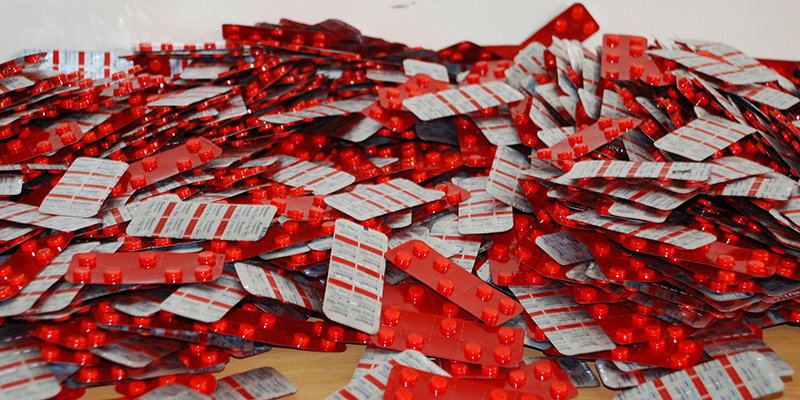#FrancoMoroccan #bet #SIAM
In the elegant grounds of the Meknes International Agricultural Show, Morocco and France have forged closer ties in the agrarian field. Under the sky of Meknes, the pavilions of the sixteenth edition of SIAM were buzzing with activity, in a ballet of 1,500 exhibitors from various backgrounds.
There, in this imperial (Ismaili) city, Meknes in this case and in the presence of Crown Prince Moulay El Hassan, the French Minister of Agriculture and Food Security, Marc Fesneau, initialed his signature, alongside his Moroccan counterpart, Mohamed Sadiki, Minister of Agriculture, Maritime Fisheries, Rural Development and Water and Forests, on a new collaboration charter.
The challenge of this meeting, celebrated under the aegis of resilient agriculture in accordance with the climate, goes beyond simple commercial exchanges, projecting itself into the quest for food security in the face of the vagaries of a climate. increasingly unpredictable. This edifice of collaboration was built on the foundations of “reciprocity” and “complementarity”, key values invoked by French Minister Fesneau on social networks.
The Franco-Moroccan partnership, which aims to be a joint response to climate challenges, is structured around an enriched sharing of expertise and innovative strategies, necessary in a context of exacerbated climatic and economic emergencies. Franco-Moroccan agricultural cooperation, rich in history, strengthens year after year, and the figures bear this out: 23% of Moroccan agri-food goes to the French market, symbolizing a fruitful and reciprocal exchange between the two banks of the Mediterranean.
In return, French local products cross the blue expanse to enrich Moroccan soil, thus illustrating the complex dance of agricultural interdependence. In the wake of this renewal, the two nations intend to continue their cooperation in the field of higher education and technical agricultural training, thus strengthening the links already solidly established during the previous meeting in Paris. The song of machines and innovative minds at SIAM is therefore only the prelude to a larger symphony, where the earth and man, together, strive to come to terms with the vagaries of our time.
However, the French press’s little tenderness towards its Minister of Agriculture and Food Safety has a heavy heart. In these times of geopolitical and economic tensions, they believe, the escapade of Marc Fesneau, French minister, to the fertile expanses of Morocco, seems to sound the death knell for French horticulture. It is in a context charged with an almost bucolic irony that the visit to the Moroccan Agricultural Show (SIAM) revealed a bitter reality: the French agricultural sectors are bending under the weight of compromises that resemble a Trojan horse.
This diplomatic ball opened, “Le Point” tells us, on the Parisian floor of the International Agricultural Show (SIA), under the auspices of an agreement between the Keeper of the Seals of Rue de Varennes and his vis- Moroccan opposite, Mohamed Sadiki. A handshake sealing a pact on technical and professional education. But it was the Meknes round which revealed a completely different score, made up of Moroccan concessions with much deeper repercussions.
The horizon of bilateral agreements stretches over themes that are as crucial as they are varied: from the ecological transition in agriculture and forestry to multiple professional and institutional commitments, consolidating a bridge between the two nations. These alliances, woven from threads of interests and diplomacy, are supposed to forge robust cooperation in the face of contemporary challenges, notably the geopolitical upheavals in the Maghreb, amplified by the Ukrainian grain crisis.
Back behind the scenes, where an older and more controversial agreement resurfaces: the one linking the European Union and Morocco for a decade. Contested by who you know, this pact is a delicate chapter in the great book of international relations, playing on the sensitive chord of employment and migration management, two areas where Morocco has established itself as a key player, thus justifying the strengthening links with Brussels.
The bilateral free trade agreement outlined in 2012, readjusting customs duties, would have ostensibly benefited Moroccan lands, raising the kingdom to the rank of third world tomato exporter. A statistical triumph which poorly conceals the tumult of French and Spanish farmers, faced with ruthless competitiveness.
And to wonder! Through this mosaic of agreements and strategies, a question arises acutely: is the French vegetable sector being sacrificed on the altar of major commercial exchanges? Is agriculture, once the cornerstone of economic independence, seeing itself relegated to the rank of adjustment variable in a geopolitical chess game where wheat replaces the pawns and Moroccan tomatoes are queen?
This ballet of conventions and goods crosses a complex landscape where the survivors of unfair competitiveness try to make their way, while others, crushed by the weight of the market economy, become its sacrifices, illustrating the paradox of a globalized world where the rules of the game too often favor the lowest bidder. The Kingdom has been there. Who’s next ?











